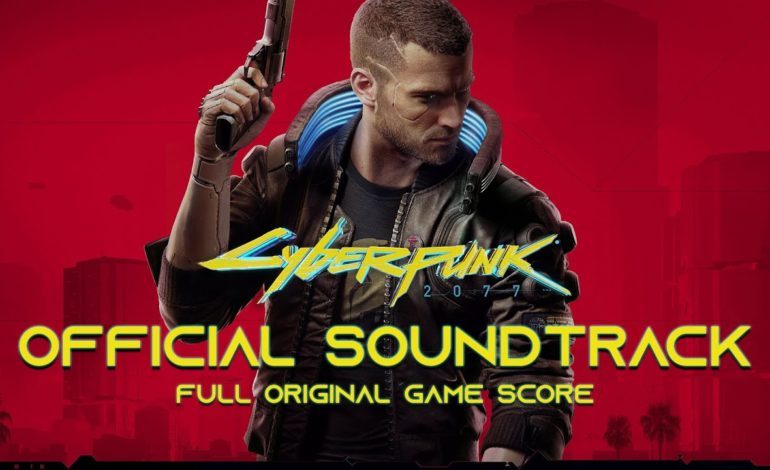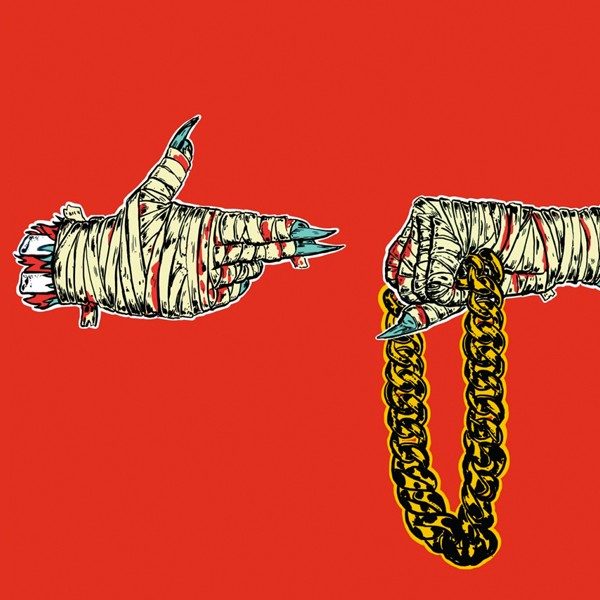

The four-volume soundtrack to colossal futuristic noir open-world video game
Cyberpunk 2077, the most notoriously glitchy video game out, ironically has one of the richest electronic soundtracks. To align with the immersive mythos of the open-world RPG developed by Polish game developer CD Projekt Red, all the artists on the tracklist are billed under fictive aliases, but, rest assured, they are the living breathing artists behind the nominal mask. The name in parentheses after each artist is the alias they go by. And, of course, owing to the game’s dystopian tech metropolis, all the tracks are shaped from the same urban underground digital grit, based mainly in distorted electronica while interweaving elements of black metal, industrial and punk, and pretty much anything else that’s subversive in sonics.
All the songs off the serially-released four-volume soundtrack were made exclusively for the game and can be played diegetically (within the game world). The very first song of the first volume (released Dec. 11, 2020) is “No Save Point” by Run the Jewels (Yankee and the Brave), one of the few anticipated singles. The duo alludes to fictional locations in the game while criticizing the system, both in-game and in real life it seems. Starting with a hip-hop track, the volume traverses into some electronic pop back to hip-hop while still holding onto the electronic element in “Metamorphosis” by Yugen Blakrok (Gorgon Madonna), a slow, rudimentary and eerie track that sets the stage for Blakrok’s lucid dissection of disorder. The electronic element is still firmly held in the reggae-adjacent “When It’s War” by Deadly Hunta & Maro Music (Footage Missing) but dropped in the hardcore “I Won’t Let You Go” by Converge (Shattered Void).
Vol. 2 (released Dec. 18, 2020) features two of the entire soundtrack’s most prominent—“Delicate Weapon” by Grimes (Lizzy Wizzy) and “Major Crimes” by Health (Window Weather). Both are cemented in a pop framework injected with a surfeit of electronic tricks and stratagems. “Delicate Weapon” is slow and crackling with a steady, simplistic percussion and a constant oscillating note that ripple and overlap each other inside its echo chamber. Surprisingly it’s nothing special, but it does its job as filler. “Major Crimes” is similarly poppy, using the same tropes of beat drops and vocals in soprano, but it has more of a techno-grunge aspect to it through its refractory bass surges and an IDM-like scramble effect that sounds like a sped-up clip of an insect coiling into itself.
Another notable track is one by Russian DJ Nina Kraviz (Bara Nova), whose other commissioned songs make up the whole of Vol. 4 of the soundtrack. “Surprise Me, I’m Surprised Today” is heavy, bass-intensive and sophisticatedly produced in its restrained buildups that unfold while a classic one-two DJ beat pumps its path, and also makes another appearance as the bookend of Vol. 4. It juxtaposes the lighter, more frivolous tracks from the second volume and stands in the shadows beside its darker companion “On My Way to Hell” by Polish producer, Poloz (Tinnitus), which features a muffled club beat that gradually sharpens beneath a bed of fizzling fuzz.
Vol. 3 (released Christmas Day, 2020) opens with “Suicide” by Geno Lenardo feat. Valin ‘ZEALE’ Zamerron (Code 137), the thick and crunchy, nonchalant rap that’s kind of corny in the hook is like a child’s idea of the coolest song they ever heard. It also may have sampled Ye’s iconic scream. “RATATA” by Baron Black & Auer (Baron Celine) is another electronic-inspired alt-reggae song that uses its onomatopoetical title in the chorus. “Night City” by REL (Artemis Delta) is an anthemic ode to Cyberpunk’s city.
Vol. 4 (released New Year’s Day, 2021) is basically a Nina Kraviz EP, as all tracks are her own. The deep house/trance opener, “Pilling in My Head,” is carried by multiple two-beat rhythms, the central one, a bouncing bass on the off-beat and a clap sample on the on-beat, Kraviz singing languidly over a delicious oonce-oonce. The remaining four tracks are equally trance derived but with additions of ambient. “Delirium 2” features faraway vocals and a hushed swirling in the background, but “Harm Sweaty Pit” is aggressive and hard-hitting in the synth bass coming close to the aggression of industrial dancing as these bizarre sweeps of noise fling up like blades being scraped in a grand motion. It continues to collage more and more but still manages to maintain minimalism throughout its 14 minutes, developing into new movements and tacking on new textural shifts bespoke to each. Kraviz then dials back the intensity in “My Lullaby for You” as she advises “set your body free” over a more colored but with the same insistent tempo as the previous, never losing her balanced speed even as she fluctuates in intensities.
Cyberpunk 2077’s soundtrack is a look into the electro eclecticism of the game’s virtual music scene in its larger, macrocosmic world teeming with side-eyeing mercenaries. The game couldn’t be the same without it. It gives it its final dimension, the cherry on top to its whole neon cyborg fugitive aesthetic. Because what would a cyberpunk be without songs of electric rebellion?

